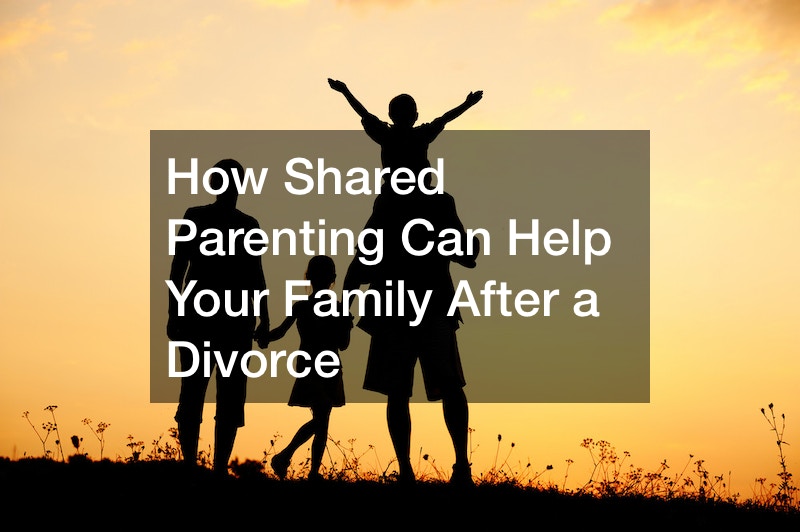How Shared Parenting Can Help Your Family After a Divorce


Separating from the person you promised to love forever and made a family with can be daunting and painful. However, divorce attorneys are there to help you make the transition as smooth as possible or protect you if things get more complicated, especially when it comes to custody matters for your children.

You might not want to share your children with your spouse, particularly if your separation has become hostile, but it’s important to find the best compromise for their sake. Divorce can be very hard on children, and it can be hurtful if their parents are fighting all the time either pre- or post-divorce. Sharing custody and acting decently towards your ex-spouse is the best way you can help your family post-dissolution of a marriage.
Many women, especially if she never imagines divorce, end up searching for “my husband filed for divorce now what.” You must understand all your options and the benefits and disadvantages of them. Courts do favor mothers in custody cases, but you need to consider if that’s the right choice for your children. This is a tricky matter, and it’s time to learn more.
Let’s find out how shared parenting can help your family after a divorce.

The family law system has long been dogged by claims of a pro-mother bias, in which women are more likely to walk away with custody, child support and other desirable victories in the wake of a divorce. Ultimately, critics and fathers rights lawyers both make a number of good points in discussing the subject: for example, critics usually point out that an estimated 82% of divorcing women in the United States want to be the custodial parent, meaning many likely gain custody during out-of-court negotiations with their former partner. However, fathers rights attorneys often point out that traditional gender roles, which often prioritize the mother as a caregiver, are still very much at play in the U.S., a claim that cannot be easily refuted.
In spite of this debate, however, many psychologists and family law attorneys agree that shared parenting is the best thing for a child. Unlike traditional custody agreements, where one parent will certainly see their child less, shared parenting splits time with the child as evenly as possible. This creates a sense of normalcy for the child or children in question, while making it easier for both parents to balance their families and other responsibilities, including work. Shared parenting also negates the often controversial issue of child support, which often results in less bitterness during the divorce process.
However, shared parenting does have its complications: for example, both parents must agree to remain in the same school district, carefully plan their schedule around their childcare duties, and be prepared to rationally and calmly work with their former partner for the benefit of their children. This can admittedly be difficult, especially if the relationship did not end on good terms. As a result, parents who are interested in shared custody will need to carefully negotiate the terms of their new arrangements with the help of a divorce lawyer or family law attorney.
The U.S. Census Bureau reports that 50% of all marriages entered into today will end in divorce; accordingly, an estimated 46,523 divorces are filed every week in the U.S. The average length of these proceedings is typically 1 year. If you are currently in the process of pursuing a divorce, the best thing you can do is use this time effectively to ensure the well-being of your family and your children. Hire a family law attorney and begin discussing shared parenting with your former partner. The process may be long and challenging, but the happiness of your family will be worth it. Helpful sites.
